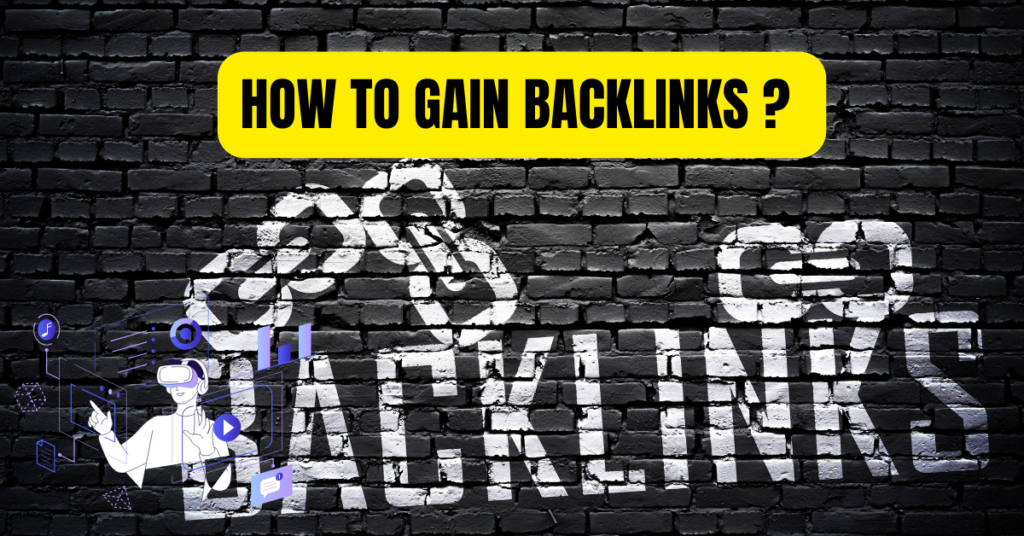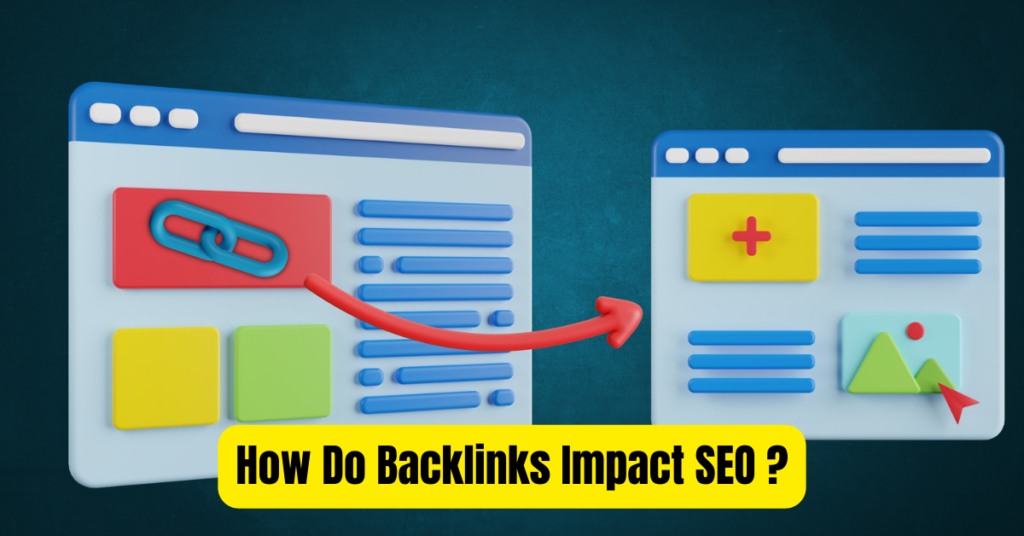Gaining Backlinks to Your Website: A Comprehensive Guide to Improving SEO Performance
Introduction
Backlinks, also known as inbound or incoming links, are links from one website to another. They play a critical role in search engine optimization (SEO) by signaling to search engines that your content is credible and valuable. Gaining high-quality backlinks can significantly improve your website’s SEO performance, leading to higher search engine rankings, increased organic traffic, and greater online visibility. This comprehensive guide will explore the importance of backlinks, strategies to acquire them, and best practices for maintaining a robust backlink profile.

Understanding Backlinks and Their Importance
What Are Backlinks?
Backlinks are hyperlinks that direct users from one website to another. They act as votes of confidence from other websites, indicating that your content is authoritative and trustworthy. Search engines like Google use backlinks as a ranking factor to determine the relevance and quality of your content.
Why Are Backlinks Important?
- Improved Search Rankings: High-quality backlinks can boost your website’s position on search engine results pages (SERPs).
- Increased Organic Traffic: Backlinks from reputable websites can drive more visitors to your site.
- Enhanced Credibility: Backlinks from authoritative sites enhance your site’s credibility and trustworthiness.
- Faster Indexing: Search engines discover new content faster through backlinks.
Types of Backlinks
Dofollow Backlinks
Dofollow backlinks pass on link equity (or “link juice”) from the referring site to the destination site, positively impacting search rankings.
Nofollow Backlinks
Nofollow backlinks include a tag that tells search engines not to pass on link equity. While they don’t directly influence rankings, they can still drive traffic and increase brand awareness.
High-Quality Backlinks
High-quality backlinks come from authoritative, relevant, and trustworthy websites. They have a greater impact on SEO performance than low-quality backlinks.
Low-Quality Backlinks
Low-quality backlinks come from spammy, irrelevant, or untrustworthy sites. They can harm your SEO efforts and should be avoided.
Strategies for Gaining Backlinks
Content Creation and Promotion
- Create High-Quality Content: Publish valuable, informative, and engaging content that others want to link to.
- Use Visual Content: Infographics, videos, and images are highly shareable and can attract backlinks.
- Promote Your Content: Share your content on social media, email newsletters, and online communities to reach a broader audience.
Guest Blogging
Write articles for reputable websites in your niche. Include a backlink to your site in the author bio or within the content. Ensure that the host site has a good domain authority (DA) and relevance to your industry.
Influencer Outreach
Connect with influencers and bloggers in your industry. Request them to review or mention your content, products, or services, providing a backlink in return.
Broken Link Building
Identify broken links on other websites and offer your content as a replacement. This strategy helps site owners fix their links while earning you a valuable backlink.
Skyscraper Technique
Find high-performing content in your niche, create something even better, and reach out to those who linked to the original piece, suggesting they link to your improved version.
Utilize Directories and Listings
Submit your website to relevant directories and listings. While this strategy has a limited impact, it can still provide valuable backlinks.
Best Practices for Backlink Building
Focus on Quality Over Quantity
A few high-quality backlinks from authoritative sites are more valuable than numerous low-quality links. Prioritize gaining backlinks from relevant, trustworthy sources.
Maintain a Natural Link Profile
Ensure your backlink profile appears natural by acquiring links from a variety of sources and using diverse anchor text. Avoid over-optimization, which can lead to penalties.
Monitor Your Backlink Profile
Use tools like Google Search Console, Ahrefs, or SEMrush to monitor your backlinks. Identify and disavow harmful links that could negatively impact your SEO.
Build Relationships
Cultivate relationships with industry influencers, bloggers, and website owners. Networking can lead to natural backlink opportunities over time.
Stay Updated with SEO Trends
SEO is an ever-evolving field. Stay informed about the latest trends, algorithm updates, and best practices to maintain a competitive edge.
Common Backlinking Mistakes to Avoid
Buying Backlinks
Purchasing backlinks can lead to penalties from search engines and harm your site’s reputation. Focus on earning backlinks organically.
Using Black Hat SEO Techniques
Avoid manipulative practices like link farms, spammy comments, and private blog networks (PBNs). These tactics can result in severe penalties.
Ignoring Link Quality
Not all backlinks are beneficial. Prioritize gaining links from high-quality, relevant websites.
Over-Optimizing Anchor Text
Over-optimized anchor text can appear unnatural and lead to penalties. Use a variety of anchor texts naturally within your content.
Tools for Backlink Analysis and Monitoring
Google Search Console
Monitor your backlink profile and identify linking domains using Google’s free tool.

Ahrefs
Analyze your backlink profile, discover new linking opportunities, and track your competitors’ backlinks.

SEMrush
Conduct backlink audits, monitor link-building campaigns, and identify harmful links with SEMrush.

Moz Link Explorer
Explore your backlink profile, track link-building progress, and uncover link-building opportunities with Moz’s tool.

Conclusion:
Gaining backlinks is a fundamental aspect of improving your website’s SEO performance. By understanding the importance of backlinks, employing effective strategies, and adhering to best practices, you can build a strong backlink profile that enhances your search engine rankings, drives organic traffic, and boosts your online presence. Stay committed to creating high-quality content, building relationships, and monitoring your backlinks to ensure long-term SEO success.
FAQs
What are backlinks, and why are they important for SEO?
Backlinks are links from one website to another, signaling credibility and value to search engines. They improve search rankings, drive organic traffic, and enhance site credibility.
What are the different types of backlinks?
The main types of backlinks are dofollow, which pass link equity, and nofollow, which do not. High-quality backlinks from authoritative sites are more valuable than low-quality ones.
How can I gain high-quality backlinks?
Strategies include creating high-quality content, guest blogging, influencer outreach, broken link building, and using the skyscraper technique.
What are common mistakes to avoid in backlink building?
Avoid buying backlinks, using black hat SEO techniques, ignoring link quality, and over-optimizing anchor text.
How can I monitor my backlink profile?
Use tools like Google Search Console, Ahrefs, SEMrush, and Moz Link Explorer to track and analyze your backlink profile.
How Backlinks Impact SEO: Effective Strategies for Building Them
How Do Backlinks Impact SEO, and What Are Some Ways to Build Them? They are…
The Best Strategies for Guest Posting to Boost Your Website Traffic
What are the Best Ways to Do Guest Posting? How Guest Posting Affects Website Traffic?…
10 Effective Strategies to Increase Traffic and Attract Customers to Low Budget Websites
Effective Ways to Increase Traffic and Attract Customers to Low Budget Websites or Businesses Increase…
How Do Image Alt Tags and Descriptions Impact SEO?
How Do Image Alt Tags and Descriptions Impact SEO? In the ever-evolving realm of digital…
What is a Buyer Persona?
Developing Detailed buyer personas is Essential: Introduction In today’s competitive market, understanding your customer is…
Top 10 Web Development Trends to Watch in 2024
Top 10 Web Development Trends to Watch in 2024 The web development landscape is continuously…








